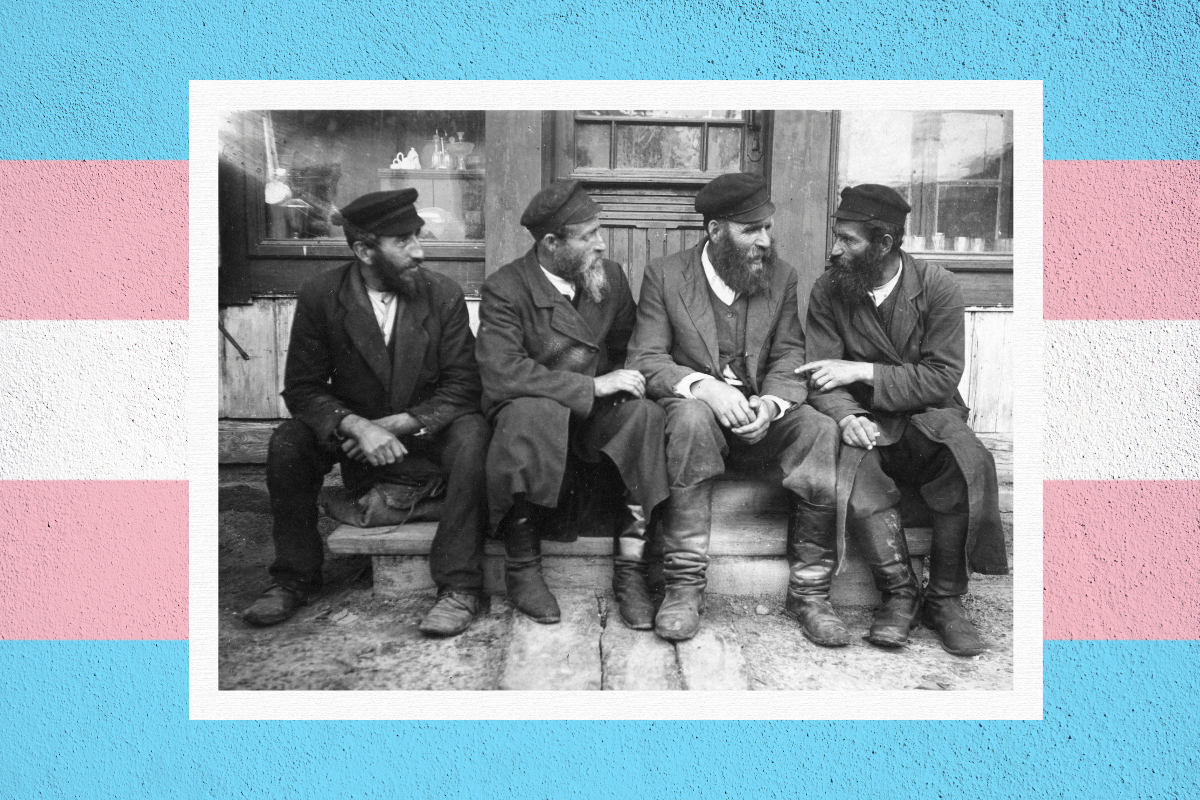“If you could time travel, where and when would you go?”
It’s a question I’ve been asked as an ice-breaker at various orientation events. Every time, it gives me pause — visiting Italy during the Renaissance sounds sublime, but maybe I’d rather spend an afternoon reading in the Great Library of Alexandria.
Still, cutting through this fantastical thought exercise, there’s always this thought: “Except I’m a queer Jewish person.”
Not being a straight, white, cisgender and Christian man is hard enough as it is here and now; bringing my queer Jewishness anywhere else could be uncomfortable or even deadly. Surely, even if I were to visit a historic Jewish community, my queerness would not be accepted by the Jews of that period, right?
Not necessarily!
Thanks to this Twitter thread from Rabbi Daniel Bogard, which draws on information from the book “A Rainbow Thread,” I recently learned the story of Berel-Beyle, a Jewish trans man whose transition was welcomed by his 19th-century shtetl of Krivozer, Ukraine.
In the 1930s, a Jewish immigrant in Brooklyn named Yeshaye Katovski first told Berel-Beyle’s story in a letter to the editor of the Jewish Forward. Katovski, who hailed from Krivozer, had read in the Forward about female athletes who went to compete in the 1936 Berlin Olympics and were returning to the states as men.
While these stories were absolutely novel and attention-grabbing to American readers, for Katovski, this was nothing new.
He wrote:
“In our shtetl of Krivozer, Ukraine, everyone knew Beyle, the girl who sold herring, geese and other foodstuffs. She was a tall redhead and sturdily built. She also spoke with a deep bass voice and walked about with hard and heavy steps. The way she carried herself always brought forth an uncertain feeling: something like, she’s not quite a woman, but also not quite a man.”
According to Katovski, Berel-Beyle’s father took his child to many rabbis to seek spiritual guidance and help; their response was always “God will help, God will help.” Eventually, God — and an unnamed but “important” professor — did help.
When Berel-Beyle was 23, he left for Odessa and met this professor, who supported his transition.
Upon Berel-Beyle’s return to the shtetl, Katovski writes:
“And on the day when Beyle was to arrive, half the shtetl ran to the bridge to greet her, or better said, to greet him. And she wasn’t called Beyle anymore: Now she was Berel. And when we saw ‘her,’ it was as if we were stunned: Before our eyes was a handsome, healthy, redheaded man. Anyone who didn’t know Beyle previously would never have known that he had been a girl. From then on in the shtetl, ‘she’ was called Berel-Beyle.”
Berel-Beyle was welcomed and accepted back into the shtetl. He learned to daven (or pray), presumably with the help of the other men in his community, and attended synagogue every day. He even married his previous girlfriend, whom Katovski notes was “a nice girl.”
I already knew this story, but as I retell it now, I am once again left overwhelmed with happiness for Berel-Beyle and appreciation for the love and empathy of his community. Despite the Talmud including no less than eight gender categories, despite the notion that we are all made in God’s image applying to everyone and despite multiple Jewish teachings emphasizing the importance of life and bodily autonomy, not everyone in the contemporary Jewish community supports the trans community.
But through Berel-Beyle’s story, I feel confident that it’s possible to make visibly trans-affirming Jewish spaces. Even without the modern trans healthcare and nuanced understanding of trans identity that we have now, the shtetl of Krivozer is proof that it’s possible.
For, as Yeshaye Katovski concludes, “In our shtetl, Berel-Beyle always had a good name as a fine, upstanding Jew.”



